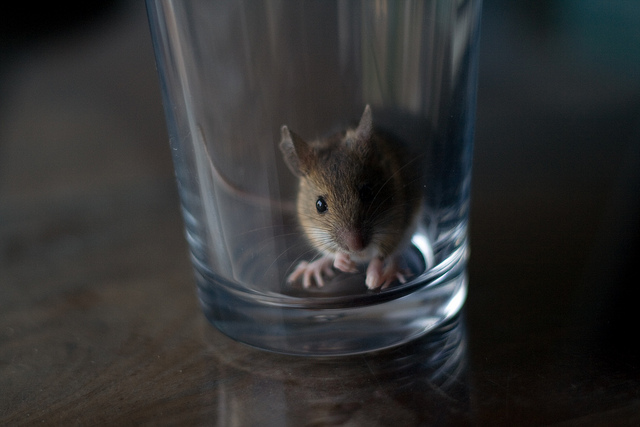Ugh, House Mice!
 'twas the night before Christmas, when all through the house, not a creature was stirring, not even a mouse...We've all read the poem, but really, who wants mice stirring in their house at any time of the year, let alone on the night before Christmas? If you have a house mouse problem, we've got some solutions for you that don't have to involve going nuclear -- and you can get your unwanted visitors out before your warmly anticipated house guests show up for the holidays.
'twas the night before Christmas, when all through the house, not a creature was stirring, not even a mouse...We've all read the poem, but really, who wants mice stirring in their house at any time of the year, let alone on the night before Christmas? If you have a house mouse problem, we've got some solutions for you that don't have to involve going nuclear -- and you can get your unwanted visitors out before your warmly anticipated house guests show up for the holidays.
First, here's what you shouldn't be using for house mouse control:
*Glue traps. They're terribly inhumane, not to mention not very efficient, because they're designed to be disposable. Also, major-league gross.
*Ultrasonic or electronic "mouse deterrents." You may have seen them marketed in the hardware store or on TV, but skip them. They're not worth your money. Most don't work at all, and when they do, it's intermittent. Not an effective way to control mice at all!
*Poison or chemicals. These pose significant dangers to the health of everyone in the house, including children and pets. You definitely don't want to be rushing Fluffy or Fido to the vet after exposure to rodent poison this December. Furthermore, if poisoned mice escape, they can carry the poison with them into the environment, spreading it to predators, including beautiful raptors!
And here are some great options you can be using:
*Mouse traps. Yes, sometimes the old ways really are the best. Spring (pun intended) for some high quality mouse traps and place them in strategic locations around the house. While they aren't always the most humane option (sometimes the trap doesn't succeed in causing instant death), they allow you to keep a close eye on your rodent control program.
*Live traps. You don't have to kill mice when you trap them. Live traps are an option, but be aware that you will need a place to release your mice, and you need to select an area where they won't invade someone else's house...or promptly get picked up by a predator.
*Cats. While not all cats are mousers, those that are tend to be very, very good at their jobs. And this is a great time of year to consider inviting someone in from the cold. Visit your local shelter and ask about older animals (who tend to have trouble getting adopted), mentioning specifically that you're looking for a great mouser.
You might wind up with a good friend AND your own personal exterminator. Get a start finding the right cat for you on Petfinder! Please note, though, that your feline friend will only be safe if poison hasn't already been put down, and that she should stay indoors for protection from neighborhood hazards like cars, dogs, and chemicals your neighbors may have been using -- plus, staying indoors protects the birds.
*Fill all points of entry. Don't use caulks or plastic fillers, which mice can go through. Instead, consider pan scrubbing wire, metal sheeting, or expanding foam insulation. With no way to get inside, mice can't get to your goodies.
*Cleaning. If you're not up to it, call on your local Miami cleaning company to help out. It's important to keep all potential sources of food locked away, and that means scrubbing down tables, stoves, counters, and other food preparation and handling areas. In addition, make sure tasty foods are tightly locked in glass containers, ideally, because mice have trouble chewing through glass (unlike plastic). Get rid of potential nesting materials like shredded paper, wool, and plant trimmings, too.
Katie Marks writes for Networx.com.
Looking for a Pro? Call us (866) 441-6648

Pest control Average Costs
Exterminators Experiences

Pest Control Got Rid Of Bedbugs From A "Bargain" Headboard

Mouse Control Included Traps And Exclusion



